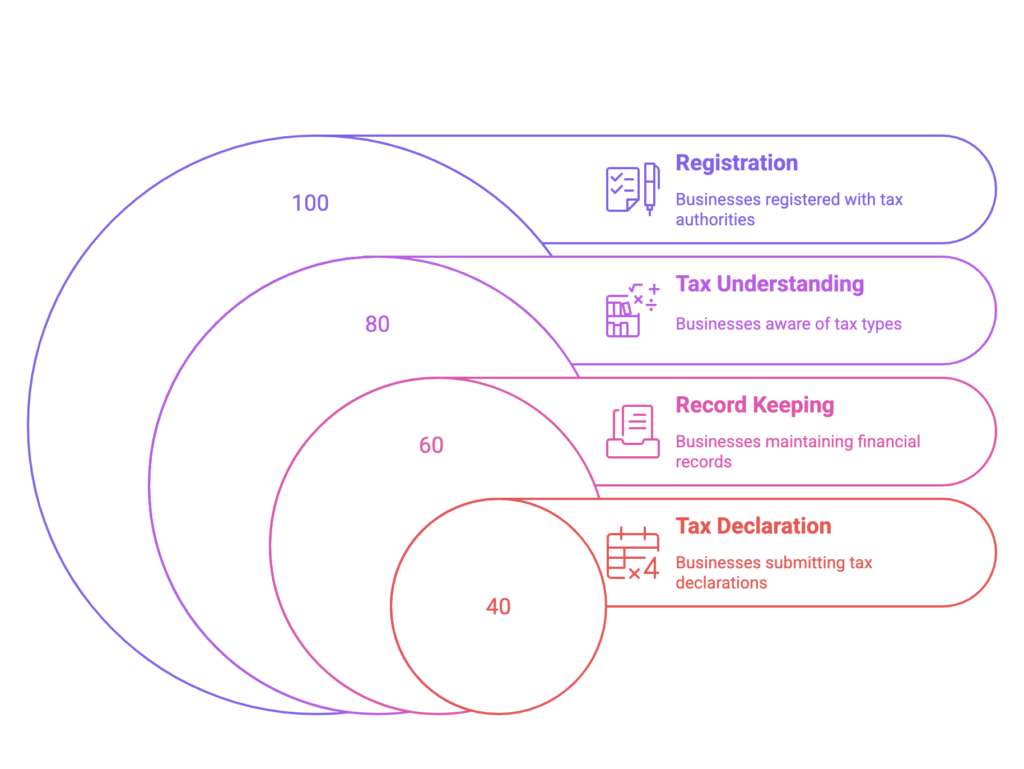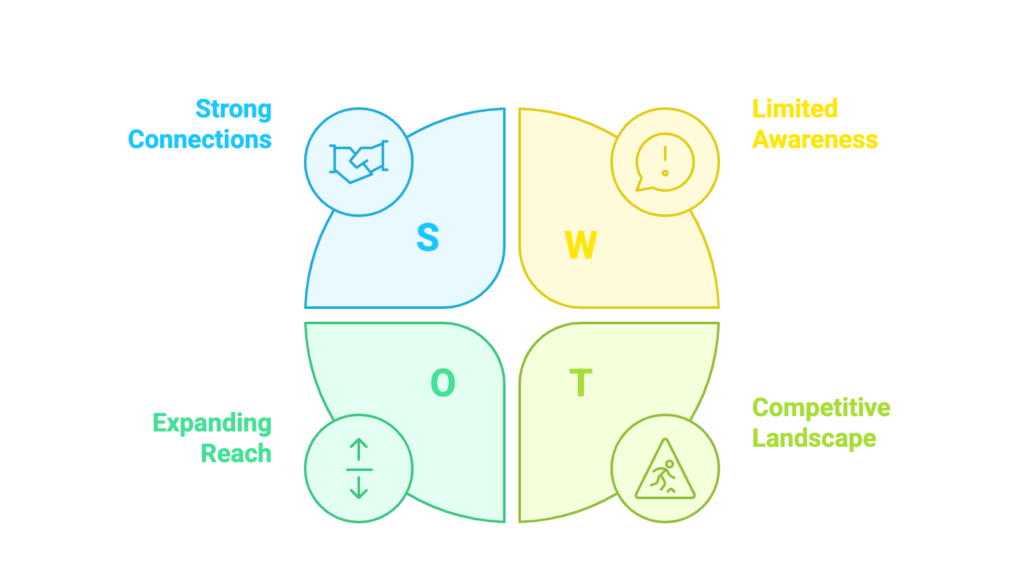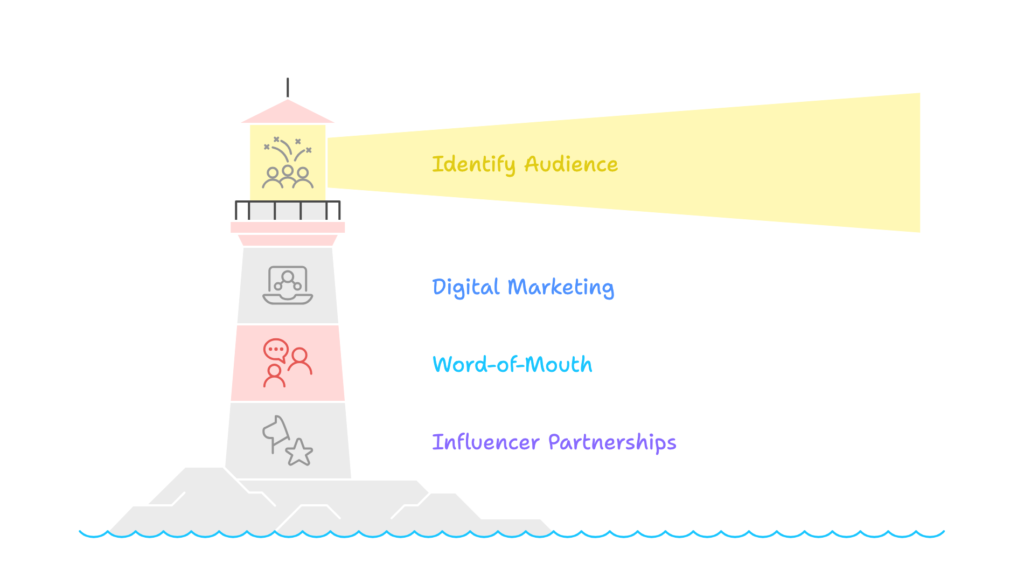Starting a business in Cameroon is a great way to build wealth and create opportunities, but many people don’t know where to begin.
You might be wondering: How do I register my business? What legal steps should I follow? How do I find funding?
Don’t worry—I’ve helped many entrepreneurs go from an idea to a fully registered business, and I’m here to guide you.
In this article, I’ll break down the process step by step, using simple language so you can understand everything easily.
By the end, you’ll know exactly how to start a business in Cameroon the right way.
11 Steps to Start a Business in Cameroon
1. Choose Your Business Structure
Before starting a business in Cameroon, you need to decide on the right legal structure.
Your choice will affect taxation, liability, and the way your business operates.

Here are the most common business structures in Cameroon:
A. Sole Proprietorship (Entreprise Individuelle) – This is the simplest form of business, owned and operated by one person. It requires minimal paperwork, but the owner is personally liable for all debts. Ideal for small businesses and freelancers.
B. Limited Liability Company (Société à Responsabilité Limitée – SARL) – A popular choice for small and medium-sized businesses. A SARL can have one or more shareholders, and liability is limited to the amount invested in the company. This structure protects personal assets and provides credibility.
Also Read: 10 things that will lift you from poverty in Cameroon
C. Public Limited Company (Société Anonyme – SA) – Suitable for larger businesses looking to raise capital by selling shares. It requires at least one shareholder and a board of directors. An SA has more regulatory requirements but is ideal for large-scale enterprises.
D. Cooperative (Coopérative) – A business owned and run by a group of people with shared economic interests. Profits are distributed among members. Cooperatives are common in agriculture and trade sectors.
E. Branch of a Foreign Company – If you’re an international investor, you can open a branch of your foreign company in Cameroon. This allows you to operate under your parent company’s name while complying with Cameroonian laws.
Your choice depends on your business goals, level of investment, and liability protection needs. If you’re unsure, consulting a business expert or lawyer can help you make the best decision.
2. Register Your Business
Once you’ve chosen your business structure, the next step is to register your company with the government.
Cameroon has simplified this process through the Business Creation Formality Centres (CFCE), which allow you to complete registration within 72 hours.
Here’s how:
✔ Gather Required Documents
To register your business, you need to prepare the following documents:
- Completed registration forms from the CFCE
- Copies of National Identity Cards or passports of shareholders and directors
- A declaration of non-conviction for shareholders and directors
- Proof of business location (lease agreement or utility bill)
- Payment receipt for registration fees
✔ Submit Your Application
Once all documents are ready, visit the CFCE in your region.
These centres bring together multiple government agencies under one roof, making the process quick and efficient.
You will submit your documents and pay the required fees.

✔ Obtain Legal Business Documents
After verification, you will receive:
- Business Registration Certificate (Registre de Commerce et du Crédit Mobilier – RCCM) – This proves that your business is legally recognized.
- Taxpayer Identification Number (NUI – Numéro Unique d’Identification) – Required for tax purposes and business compliance.
- Business License (Patente) – This is mandatory for all businesses operating in Cameroon. It determines the taxes your business will pay.
✔ Register for Taxes
New businesses in Cameroon are required to register with the tax authorities.
The good news is that startups are exempted from paying the business license tax for the first two years.
After that, your tax obligations will depend on your revenue and business structure.
✔ Register with CNPS (Social Security)
If you plan to hire employees, you must register with the National Social Insurance Fund (Caisse Nationale de Prévoyance Sociale – CNPS).
This ensures that your workers have access to benefits like health insurance and pensions.
✔ Open a Business Bank Account
To manage your business finances professionally, open a corporate bank account.
Banks may require your business registration certificate, tax identification number, and proof of business address.
After completing these steps, your business will be fully registered and ready to operate legally in Cameroon.
Now, you can focus on growing your business and attracting customers!
3. Fulfill Tax Obligations
Taxes are a crucial part of running a legal business in Cameroon.
Registering with the tax authorities ensures your business stays compliant and avoids penalties.
Here’s what you need to do:
✔ Register with the Tax Administration
Once your business is registered, you must obtain a Taxpayer Identification Number (Numéro Unique d’Identification – NUI) from the Directorate General of Taxes (DGI).
This number is required for all tax-related activities.
✔ Understand Business Taxes in Cameroon
Businesses in Cameroon are subject to different types of taxes depending on their structure and revenue.
These include:
- Corporate Income Tax (CIT) – Applied to company profits at a standard rate of 33%.
- Value Added Tax (VAT) – Businesses with an annual turnover above 50 million FCFA must charge VAT at 19.25% on goods and services.
- Business License Tax (Patente) – All businesses must pay this tax annually, but new businesses are exempt for the first two years.
- Personal Income Tax (PIT) – If you have employees, you must deduct and remit income tax on their salaries.

✔ Keep Accurate Financial Records
Cameroonian tax authorities conduct regular audits, so maintaining accurate financial records is essential.
Keep track of sales, expenses, and tax payments to avoid any issues.
Hiring an accountant or using accounting software can help.
✔ Declare and Pay Taxes on Time
Tax declarations must be submitted periodically, depending on the type of tax.
Failure to comply can result in penalties.
If you’re unsure about tax filing requirements, consult with a tax professional.
Also Read: Business Ideas to start with 50k
4. Secure Necessary Licenses and Permits
Depending on your industry, your business may require additional licenses or permits before it can operate legally.
Here’s what you need to do:
✔ Identify the Required Licenses
Some businesses require special permits in addition to the standard registration.
These include:
- Pharmacies & Medical Clinics – Must obtain authorization from the Ministry of Public Health.
- Construction & Real Estate – Need approval from the Ministry of Urban Development and Housing.
- Food & Beverage Businesses – Restaurants, bars, and food manufacturers must get sanitary and hygiene certificates.
- Import & Export Businesses – Must register with the Cameroon Customs Authority for trade permits.
✔ Apply for the Permits
Each industry has different application processes.
Visit the relevant ministry or regulatory body to apply for the necessary permits.
Some approvals may require inspections or proof of compliance with industry regulations.
✔ Renew Permits Regularly
Most business licenses and permits in Cameroon must be renewed annually.
Always check the expiration dates to avoid fines or business closures.
5. Open a Business Bank Account
Separating your business and personal finances is essential for managing cash flow, tracking expenses, and building credibility.
Here’s how to open a business account in Cameroon:
✔ Choose a Bank
Several banks in Cameroon offer business banking services, including:
- Afriland First Bank
- Société Générale Cameroon
- Ecobank
- UBA Cameroon
- BICEC
Compare account fees, services, and loan options before choosing a bank.

✔ Prepare the Required Documents
To open a corporate account, you typically need:
- Business Registration Certificate (RCCM)
- Taxpayer Identification Number (NUI)
- Business license (Patente)
- Proof of business address
- Copies of shareholder and director IDs
✔ Apply for Additional Financial Services
Once your account is open, you can access other financial services like business loans, overdraft protection, and online banking.
Many banks offer startup financing options to help new businesses grow.
A business account not only makes transactions easier but also helps build trust with suppliers, investors, and customers.
Also Read: Business Ideas for Students in Cameroon
6. Establish a Physical Presence
Having a physical location for your business can boost credibility and make it easier to attract customers.
While some businesses, like online stores, can operate remotely, many require a dedicated office, shop, or workspace.
✔ Choose the Right Location
The location of your business can determine its success.
Consider:
- Customer Accessibility – Choose a spot that is easy for your target audience to find and reach.
- Competition – Being near similar businesses can be beneficial, but too much competition might be a challenge.
- Costs – Rent and utility expenses should align with your budget.

✔ Ensure Compliance with Zoning Laws
In Cameroon, different areas are designated for residential, commercial, or industrial use.
Before signing a lease or buying property, check with the local council to confirm your business type is permitted in that area.
✔ Set Up Your Work Environment
Once you secure a location, make it functional and appealing.
This may include:
- Installing business signage
- Setting up office furniture and equipment
- Ensuring internet and electricity connections
- Adhering to safety regulations if required
- A professional and well-organized space can improve productivity and attract more clients.
7. Network and Build Relationships
In Cameroon, who you know can be just as important as what you know when it comes to growing a business.
Networking helps you find partners, suppliers, and potential customers.
✔ Join Business Associations
Becoming a member of professional organizations can open doors to business opportunities.
Consider joining:
- Cameroon Chamber of Commerce, Industry, Mines, and Crafts (CCIMA)
- GICAM (Groupement Inter-Patronal du Cameroun)
- Local business networking groups

✔ Attend Business Events
Trade fairs, expos, and networking events allow you to meet industry experts, potential clients, and investors.
Some popular events include:
- PROMOTE (International Business Fair of Cameroon)
- DLA Exchange Networking Events
- Local Chamber of Commerce Meetups
✔ Use Social Media and Online Platforms
Building relationships isn’t just done in person.
Platforms like LinkedIn, Facebook, and WhatsApp business groups help connect with other professionals and potential customers.
✔ Build Strong Partnerships
Collaborate with other businesses to expand your reach.
This can include cross-promotions, partnerships with suppliers, or teaming up with influencers to market your products or services.
In Cameroon’s business environment, strong relationships can open up new opportunities and lead to long-term success.
8. Stay Informed and Compliant
Laws and regulations change over time, and staying informed helps you avoid legal issues and keep your business running smoothly.
✔ Keep Up with Business Law Changes
Cameroon is part of OHADA (Organization for the Harmonization of Business Law in Africa), meaning many business laws are standardized across West and Central Africa.
You should regularly check for updates on:
- Tax regulations
- Labor laws
- Business registration requirements
✔ Renew Your Licenses and Permits
Many business licenses and permits require annual renewal.
Missing deadlines can lead to fines or even business closure.
Keep track of expiration dates and set reminders for renewal.

✔ Maintain Proper Business Records
Good record-keeping is essential for legal compliance, tax reporting, and financial management.
Make sure to:
- Keep copies of registration documents, tax receipts, and employee contracts.
- Maintain accurate financial records for audits and reporting.
- Use accounting software or hire a professional to manage finances.
✔ Consult Legal and Business Experts
If you’re unsure about a regulation or tax obligation, seek advice from lawyers, accountants, or business consultants.
It’s better to get professional guidance than risk costly mistakes.
9. Develop a Marketing Strategy
No matter how great your business idea is, it won’t succeed if people don’t know about it.
A solid marketing strategy helps attract customers, build brand awareness, and drive sales.
✔ Identify Your Target Audience
Before promoting your business, you need to know who your ideal customers are.
Consider factors like:
- Age, gender, and income level
- Interests and buying habits
- Location (Are they in Douala, Yaoundé, or other regions?)
✔ Use Digital Marketing
Many Cameroonians use the internet daily, making online marketing a powerful tool.
You should:
- Create a business website to showcase your products and services.
- Use Facebook, Instagram, and WhatsApp Business to engage with customers.
- Run targeted ads on social media to reach more people.
- Optimize your website for local SEO so it appears in Google searches.

✔ Leverage Word-of-Mouth & Referral Marketing
In Cameroon, personal recommendations play a big role in business success.
Encourage satisfied customers to spread the word by offering:
- Discounts for referrals
- Loyalty programs
- Exceptional customer service that keeps people coming back
✔ Partner with Influencers & Local Celebrities
Working with influencers who have a strong following on social media can help boost your brand’s visibility. Look for micro-influencers in your niche to promote your business affordably.
Also Read: Ways to make money online in Cameroon
10. Hire and Manage Employees
As your business grows, you’ll need a reliable team to help run daily operations.
Hiring the right employees ensures efficiency and productivity.
✔ Determine the Roles You Need
Before hiring, identify key positions your business needs. Common roles include:
- Sales and customer service representatives
- Accountants and administrative staff
- Technicians, drivers, or skilled workers (depending on your industry)
✔ Follow Legal Hiring Procedures
In Cameroon, all employers must register their employees with the National Social Insurance Fund (CNPS).
This provides workers with benefits like health insurance and pensions.
You’ll need to:
- Sign an employment contract with each worker
- Declare salaries and pay social security contributions
- Comply with Cameroon’s labor laws regarding working hours and wages
✔ Train and Motivate Your Team
Providing regular training ensures your employees stay productive and up to date with industry trends.
Offering bonuses, promotions, and incentives also helps keep workers motivated.
✔ Use Payroll Management Tools
To ensure smooth salary payments and tax deductions, consider using payroll software or hiring an accountant to manage employee salaries.
Hiring and managing the right team creates a strong foundation for business growth and long-term success.
11. Scale and Expand Your Business
Once your business is running smoothly, it’s time to focus on growth and expansion.
Scaling your business helps increase revenue and reach new markets.
✔ Introduce New Products or Services
Analyze customer needs and feedback to identify opportunities for expansion.
You can:
- Add complementary products or services
- Improve existing offerings based on customer suggestions
- Launch seasonal promotions to boost sales
✔ Expand to New Locations
If your business is doing well, consider opening additional branches in other cities like Yaoundé, Douala, Bafoussam, or Limbe.
Expanding to different regions helps increase your customer base.
✔ Seek Business Funding
Growth often requires additional capital. You can fund your expansion through:
- Bank loans (Most commercial banks in Cameroon offer business financing)
- Government grants and startup programs
- Business partnerships or investors
✔ Optimize Business Processes
As your company grows, efficiency becomes even more important.
Consider automating key processes like inventory management, accounting, and customer support.
✔ Build a Strong Brand Reputation
A good reputation helps attract loyal customers. Focus on:
- Delivering excellent customer service
- Maintaining high-quality products
- Engaging with customers on social media
Scaling your business requires planning and strategic decision-making.
Starting a business in Cameroon may seem challenging, but with the right steps, you can build a profitable and sustainable venture.
Now, I’d love to hear from you! Are you currently planning to start a business, or have you already taken the first steps?
Share your experience, challenges, or questions in the comments below.




